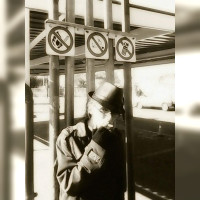Bookstores and libraries are famous hiding places for bookworms, authors and, well, great books. Are you taking advantage of them as an author? You—yes, you—could (and should) have your book listed in libraries and stores across the country. Think it’s impossible? Far from it. Here’s how to get your book out there.
The Self-Published Mainstream
When self-publishing, there are some criteria your book will have to meet in order to be listed on mainstream book markets such as Amazon and Barnes & Noble. Among others, each edition of your book will need an ISBN number—apply for it through the US ISBN Agency, ISBN International, or look at the options offered by your imprint (i.e. Lulu). Additionally, your book might need a barcode, listed sale price, and the author’s name and book title printed on the spine. Great guidelines are available from Barnes & Noble’s official website.
Library Distribution
The majority of libraries welcome book submissions. We’d suggest that you get in touch with your library and ask for the person in charge of new book acquisitions. Some, like the Toronto Public LIbraryto name just one, have guidelines for submissions and contact information available on their website. Your book can even be submitted for inclusion in the Library of Congress—as long as you follow their guidelines.
Submitting to Self-E
Self-E is a project launched by the Los Angeles Public Library (LAPL). It aims to put authors of e-books in touch with readers by making e-books available in libraries through their state programs. It’s worth reading their FAQ beforehand. There’s no cost to submitting your book, and all you have to do is send them your e-book in .pdf or .epub format.
The Old Fashioned Way
Visit your local brick-and-mortar bookstores and take along a couple of copies of your book. Odds are, they’ll be more than happy to add your book to their shelves (and yes, it’s worth keeping a couple of copies aside for this reason!). If you’re particularly well acquainted with the bookstores in your area, let’s take a look at the next step.
Organizing a Book Signing
Call a couple of bookstores near the release of your book and ask if they would host a book signing. Local stores often love the idea of hosting an author from their town, and you might just draw some new fans to the store! Take along some copies of your books, a stack of business cards, and a couple of comfortable pens. Also read Six Tips for Surviving a Book Signing—and good luck!
Host a Book Talk
Contact libraries and arrange a book reading or talk. I’ve always approached this opportunity a little different than book signing, though it might happen before or after one. For a talk, you will likely need access to a PA System (at its most basic, that’s speakers, a microphone and two-channel mixing desk), and you will be handling questions, not just signing, afterward.
Here’s the cool bit: Get in touch with other authors you may happen to know and ask if they’d like to be part of your event. Too far away to drive to the venue? That shouldn’t be a problem. Set up a projector screen (you can hire these pretty cheaply) and do it through Skype instead.
Contacting Book Clubs
Book clubs often look to stores and libraries to find their reading material. Wouldn’t it be great if your favorite author showed up to your next book club meeting to discuss their book? You could be that author! Find out who runs your local book club and offer them (signed) copies of your latest work!
Donating Your Books
Many projects and libraries accept submissions, and it’s a great thing to do for many reasons. For prisons and correctional facilities, there are projects like Books Through Bars and Books 2 Prisoners—of course, donations of any books, not just your own, are welcome. The same is true for school library projects—and keep in mind that schools love a visit from a local author just as much as libraries!
Book Exchanges
Don’t discount your nearest book-exchange. They deal mostly in secondhand books, but I’ve met owners who are more than happy to put a couple of signed copies on their shelves, too. If you go this route to get your book out there, write a letter to the person who buys the book. You can even direct them to your website for a special message. This is great exposure, if a little unusual, and you might be really surprised to find out where your books travel to!
“In a good bookroom you feel in some mysterious way that you are absorbing the wisdom contained in all the books through your skin, without even opening them.” – Mark Twain




